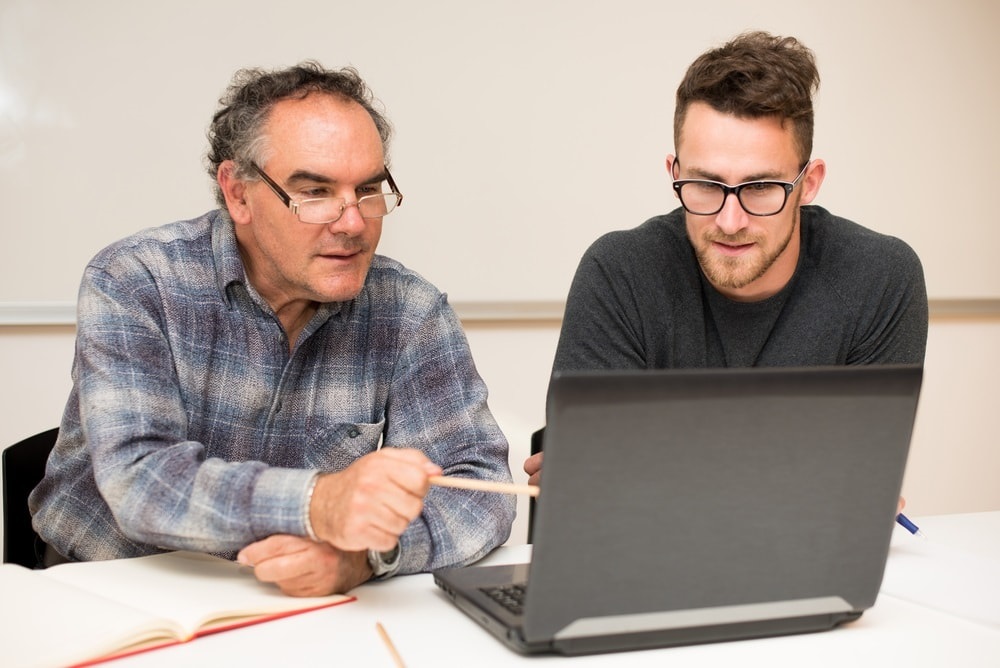
Q: From books, seminars and friends, I’ve learned that having a mentor can be very valuable to my career. But I have yet to hear any practical advice in how to find and collaborate with one. Do you have some tips on how to identify and develop a relationship with someone who knows the ropes and wants to share their wisdom?
A: Many successful mentors and mentees would agree that finding a mentor can be the most important step in achieving a satisfying career. Professionals who don’t have a guru wish they did. Unfortunately, the process for cultivating a bond with this special person is both mystifying and a little scary.
Here are some important attributes you should look for in selecting the right mentor:
- She/he must be available and willing to spend time with you. All of the great advice in the world won’t do you any good unless you have ready access to it.
- Your mentor should have a healthy self-image. Self-confident people are willing to suggest new approaches. They make good leaders. And they revel in your success as a reflection of their mentoring ability. You certainly don’t want advice from someone who will be intimidated by your increasing stature and expertise.
- They should be highly respected in their organization and their community. With respect comes contacts and access to their network of peers. Often, mentoring involves putting you together with others who can help you achieve your goals.
- Good mentors have a facility for helping you to focus on where you want to go. They should possess a global view and be able to see beyond their own area of responsibility. Embracing your mentor’s vision of the big picture will help you to move to a new situation when the time is right.
- Forthright communication is also important. Your mentor should feel comfortable discussing your flaws as well as your talents. She or he should be empathetic, willing to admit to an occasional mistake or lack of information, adept at asking probing questions and eager to serve as a source of support, encouragement, problem-solving ideas and atta’ boys (girls).
- A little discretion can go a long way. It’s best if your conversations are confidential and your mentor is regarded as someone who knows how to keep his or her mouth shut. Gossips are rarely privy to the most important decisions.
- Keep in mind the importance of both company and community visibility. You may find your mentor through volunteer work, classes, your company’s United Way Campaign, etc.
Now that you know who to look for, you must frequent places where you’re most likely to find him. As you might expect, your workplace is a good start.
While your immediate supervisor should be a logical mentoring choice, she may not be the best one. Before you latch onto your boss, take a look at the political climate in your department. Are your peers likely to feel slighted if your manager becomes your personal mentor? Is your supervisor someone who has respect and contacts throughout the company? If you can comfortably answer, “no,” to the first question and “yes” to the second, then proceed to build a mentoring relationship.
Should your boss not be a good fit, you might consider someone a couple of levels higher than you. He may be affiliated with your area or in a completely different one. A financial analyst who has a mentor in sales may gain exposure to a perspective that another numbers person wouldn’t have.
Some companies with more advanced human resource systems foster mentoring relationships by helping to pair neophytes with old pros. To see if your firm has such a program, talk to someone in HR whom you trust.
Your friends are another good source of information. They may have friends or acquaintances who would enjoy being your “Yoda.”
Of course, there are also the community and fraternal associations you would typically use in networking for a job. Churches, chambers of commerce, professional organizations representing your career or industry, nonprofit committees or boards of directors, alumni groups, political parties, conventions, workshops and professors from local colleges are all excellent resources for identifying mentors.
In your quest for the perfect mentor, also keep your eyes open for seasoned veterans who show strong interest in you. The mentor relationship is a two-way street. Mentors look for mentees.
Once you identify your candidate, how do you begin the relationship? Consider the direct approach: call or talk to him in person; say you’ve been watching his career, like his ideas and work style and would appreciate the opportunity to develop a mentoring friendship with them. Most people will respect your initiative and feel complimented by your selection.
Should this method seem a bit forward, ask a mutual friend to serve as an intermediary and enthusiastically introduce you to your potential mentor. Coming highly recommended by a trusted colleague should boost your confidence sufficiently to follow through in developing the relationship.
 Taunee Besson, CMF, is president of Career Dimensions, Inc., a consulting firm founded in 1979, which works with individual and corporate clients in career change; job search; executive, small business and life coaching; college major selection and talent management.
Taunee Besson, CMF, is president of Career Dimensions, Inc., a consulting firm founded in 1979, which works with individual and corporate clients in career change; job search; executive, small business and life coaching; college major selection and talent management.
“One of the smartest minds in the career field,” according to Tony Lee (VP of CareerCast Operations at Adicio and former publisher of the Wall Street Journal’s Online Vertical Network), Besson began writing for the Dallas Times Herald in the early 80s. Having read several of her columns, Lee asked her to contribute regular articles to the Journal’s National Business Employment Weekly (NBEW) as well. Since then, she has been a triple award-winning columnist for CareerJournal.com and Senior Columnist for CareerCast.com, as well as WorkingWoman.com and Oxygen.com. At Lee’s request, Besson authored five editions of NBEW’s Premier Guide to Resumes and three of its Premier Guide to Cover Letters. She has also written articles and/or been quoted in The Wall Street Journal, The Dallas Morning News, Business Week, Time, Smart Money and Yahoo among others.
Taunee has worked on community nonprofit boards and committees for over 30 years including Girls Inc., Women’s Center of Dallas, Girl Scouts and Dallas Women’s Foundation, The Volunteers of America and Mortarboard, among others. She was a member of the Leadership Dallas in 1987 and Leadership America in 2003.
In 1994, the Dallas Chapter of the American Society for Training and Development chose her as its “Professional of the Year”. Her NBEW columns were selected for the “Ten Best Article Award” in 1990, 1994 and 1997. In 1999, Alpha Gamma Delta, a 200,000 member fraternal organization, named her as one of three “Distinguished Citizens” at its biannual international convention.
Published by Conselium Executive Search, the global leader in compliance search.

